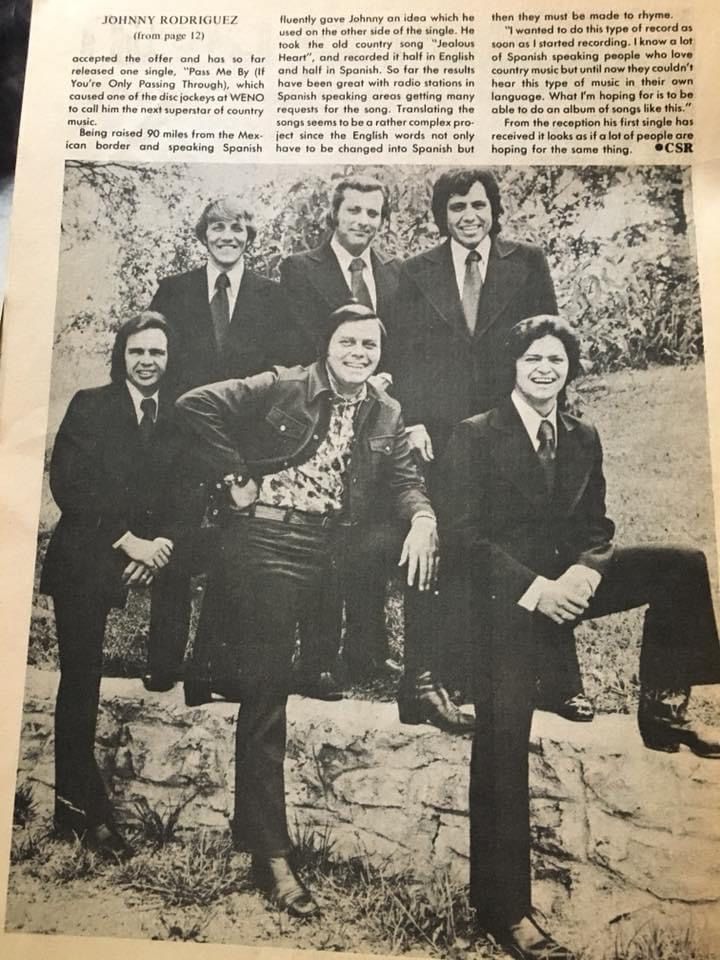
A Ballad of Unspoken Love and Lingering Regret
Ah, “Sister Sue.” The very title sends a ripple through the memories, doesn’t it? Back to a time when country music wasn’t just a genre; it was a feeling, a narrative spun with threads of everyday life, heartache, and the simple, enduring power of human connection. This wasn’t a song designed for stadium anthems or flashy music videos. No, “Sister Sue” was the kind of tune you’d hear drifting from a crackling radio on a long drive, or humming softly from a jukebox in a dimly lit honky-tonk, its gentle melody and poignant lyrics weaving their way into the fabric of your heart. Released in 1974, at a time when the airwaves were still very much open to storytelling and genuine emotion, this collaborative effort between the rising star Johnny Rodriguez and the talented Angel Rene quietly, yet effectively, carved its niche. While it may not have soared to the very pinnacle of the charts, “Sister Sue” reached a respectable #26 on the Billboard Hot Country Singles chart. For many of us who lived through that era, however, its impact far outweighed its numerical position. It was a song that resonated deeply, speaking to a universal experience of unspoken affection and the bittersweet ache of what might have been.
The beauty of “Sister Sue” lies not in grand declarations, but in its understated elegance, its ability to paint a vivid picture with a few carefully chosen strokes. It tells the story of a man who finds himself subtly, undeniably drawn to his best friend’s sister, Sue. It’s a classic tale, one we’ve all witnessed or perhaps even lived ourselves: the quiet observations, the shared glances, the unspoken longing that builds over years of proximity and shared history. The lyrics, delivered with Johnny Rodriguez’s signature smooth, understated warmth, convey a profound sense of wistful longing. He sees her in the periphery of his life, a constant, comforting presence, yet always just beyond his reach. The narrative isn’t about a sudden, passionate flame, but rather a slow burn, a deep affection that develops organically, almost imperceptibly, until it becomes an undeniable part of his emotional landscape. And then there’s Angel Rene, whose presence on the track, though perhaps less overtly prominent than Rodriguez’s, adds a crucial layer of depth and authenticity. Her harmony, whether subtle or soaring, embodies the very essence of Sue, giving her a voice, a presence that grounds the narrative and makes her more than just an object of affection, but a fully realized individual.
What truly elevates “Sister Sue” beyond a simple love song is the inherent conflict and the subtle tragedy it explores. The protagonist is caught in a delicate bind: his loyalty to his friend, Sue’s brother, prevents him from openly pursuing his feelings. It’s a conflict many can relate to, a tightrope walk between desire and duty, between personal happiness and the unspoken rules of friendship. This is where the emotional resonance truly hits home, especially for older listeners who understand the complexities of life’s unchosen paths. We’ve all had those moments, haven’t we? Opportunities missed, words left unsaid, feelings tucked away for the sake of decorum or out of fear of upsetting the delicate balance of relationships. The song isn’t a lament of what was lost, but rather a reflective contemplation of what could have been. There’s a quiet dignity in the protagonist’s acceptance of his situation, a melancholic understanding that some affections are simply destined to remain unrequited, existing as cherished memories rather than realized dreams. This reflective quality, the gentle nudge to consider our own hidden affections and unspoken regrets, is what makes “Sister Sue” a truly timeless piece of country music, a beautiful and poignant reminder of the enduring power of quiet longing.